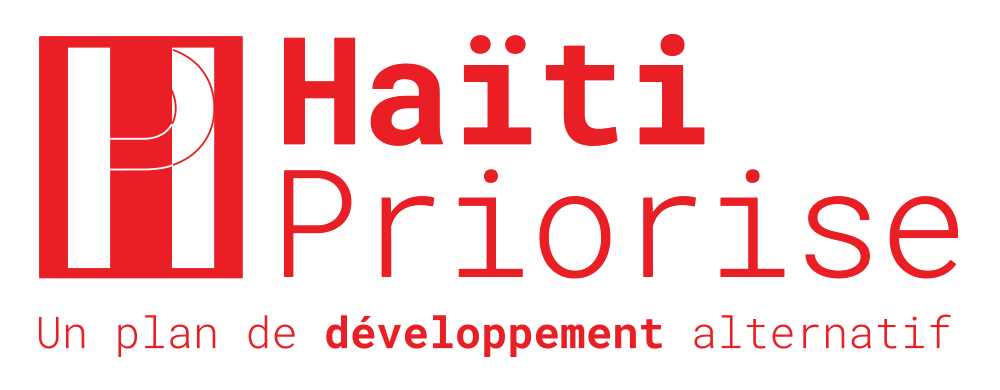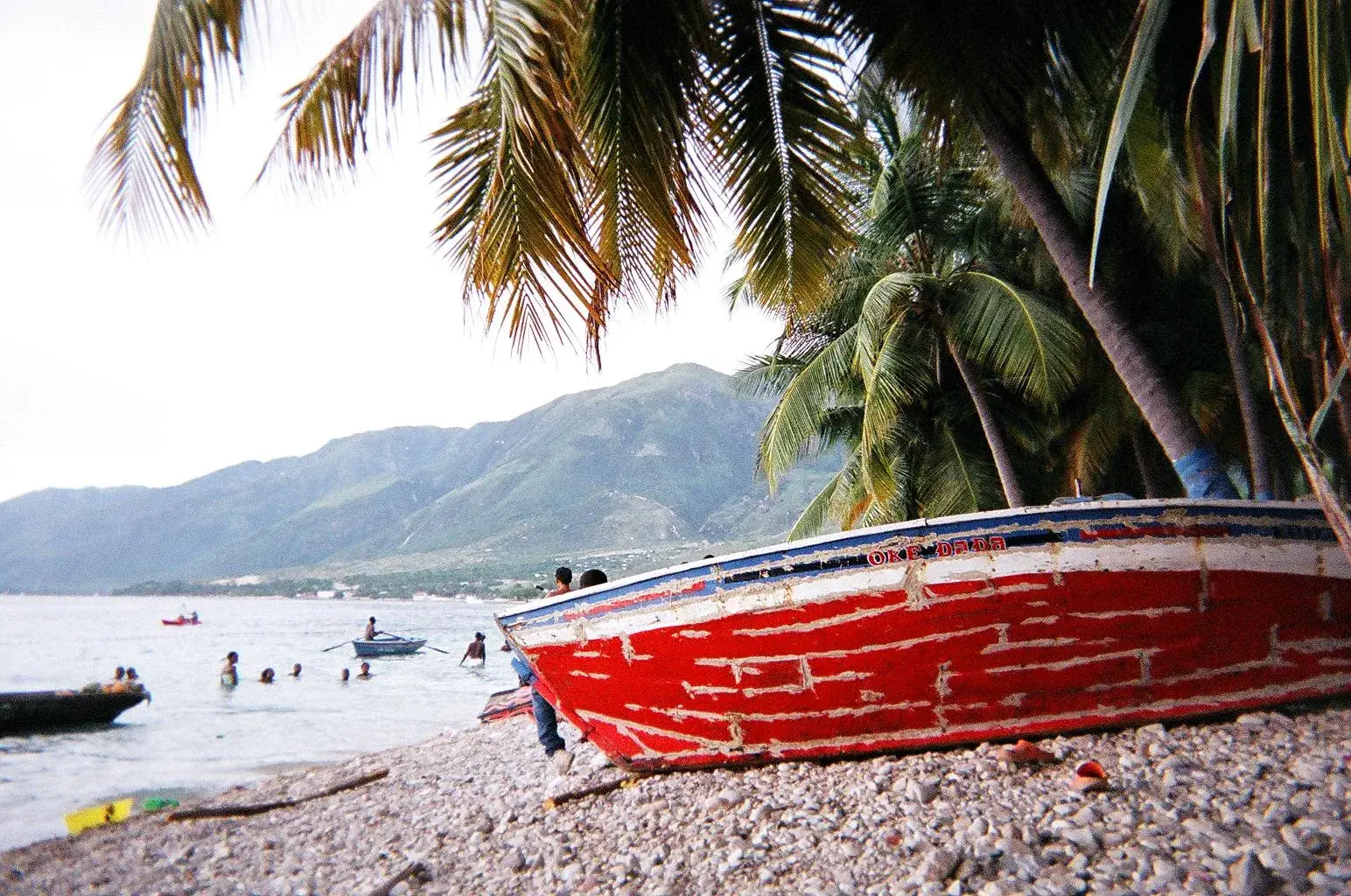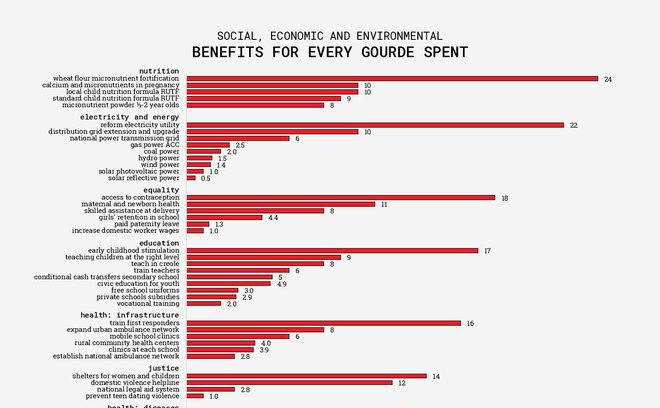Haïti Priorise
Identifying Solutions for Haiti
Haiti faces some of the most acute social and economic development challenges in the world. Despite an influx of aid in the aftermath of the 2010 earthquake, growth and progress continue to be minimal, at best.
With so many actors and the wide breadth of challenges from food security and clean water access to health, education, environmental degradation, and infrastructure, what should the top priorities be for policy makers, international donors, NGOs and businesses? With limited resources and time, it is crucial that focus is informed by what will do the most good for each gourde spent.
The Haïti Priorise project worked with stakeholders across the country to find, analyze, rank and disseminate the best solutions for the country.
We engaged people and institutions from all parts of society, through newspapers, radio, and TV, along with NGOs, decision makers, sector experts, and businesses to propose the most relevant solutions to these challenges. We commissioned some of the best economists in Haiti, the region and the world to calculate the social, environmental and economic costs and benefits of these proposals.
We asked everyone - from Nobel Laureates to everyday citizens - to set their priorities for the country, sparking a nationwide conversation about what the most effective and efficient solutions are for Haiti.
The Copenhagen Consensus produces practical ideas that leaders can implement, and help us to identify and promote cost-efficient initiatives. Most importantly, however, it will serve to emphasize the importance of collective action."
- Oscar Arias, President of Costa Rica and recipient of Nobel Peace Prize
In a hurry? Download the 1-page overview of all cost-benefit research results here. For background watch the intro video below, and download the methodology overview here.
The President of Haiti receives the Haiti Priorise outcome
An eminent panel including a Nobel laureate economist and Haitian economic experts announced a prioritized list of investments that would produce phenomenal benefits for Haiti.
Bjorn Lomborg, Vernon Smith, and Haiti Priorise Eminent Panelists Ketleen Florestal and Raymond Magloire delivered their findings to President Jovenel Moïse, as well as the Prime Minister, the President of the Senate, and others (pictured right).
Copenhagen Consensus Center director Dr. Bjorn Lomborg said:
Like all nations, Haiti has limited resources and prioritization among potentially unlimited interventions is needed. Understanding the costs and benefits of different proposals can improve the public conversation about priorities. These findings create a compelling case for decision-makers to focus more attention on phenomenal investments where a small amount could achieve huge and lasting effects.”
Priorities for Haiti: Electricity Reform, Nutrition and Child Health
Electricity reform, child nutrition, and immunization should be prioritized by decision-makers, an eminent panel including Haitian economic experts and a Nobel laureate economist announced.
The Investments in electricity reform, nutrition and child health top their list of 85 interventions, which was created following the Copenhagen Consensus framework to identify areas with the biggest returns to society.
Pictured left, Bjorn Lomborg presenting the eminent panel prioritization to Haiti’s Planning Minister and Planning Ministry Deputy.
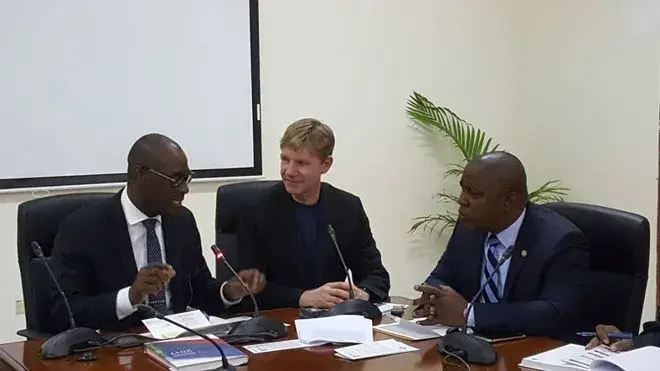
The Process
First, we listened. We organized sector expert roundtable meetings to solicit inputs from local experts about the best solutions for Haiti. We heard more than 700 ideas on how to help the country.
Then, we researched. We asked leading international and Haitian economists to examine the most promising solutions in their fields, which produced groundbreaking new research that was stress-tested in review roundtables meetings, and then published and presented to leading news outlets.
Finally, we scrutinized and compared the proposed interventions. Applying limited resources to unlimited problems means prioritizing—finding the policies that do the most good for Haiti. At our 2017 conference in Port-au-Prince, we asked an Eminent Panel of economists and development experts to analyze the proposals and identify the smartest investments.
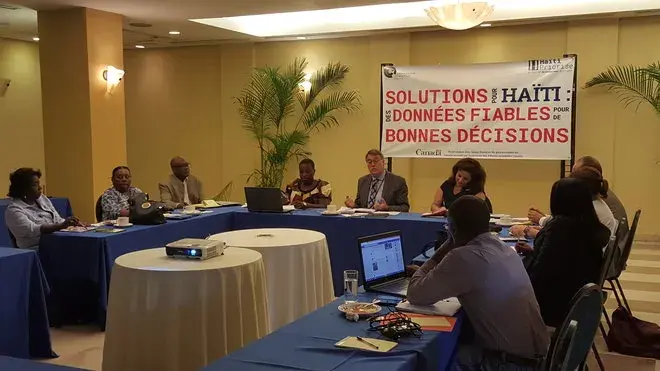
The Research
Haïti Priorise commissioned 45 cost-benefit research papers from economists (one-third of them Haitian public servants). Each set of researchers adopted a standardized approach and studied proposals as diverse as linking farmers to the international carbon market, improving rice production, setting up flood warning systems, creating paid paternity leave to get more women into the formal workforce, and teaching young children in their native language of Creole instead of French.


